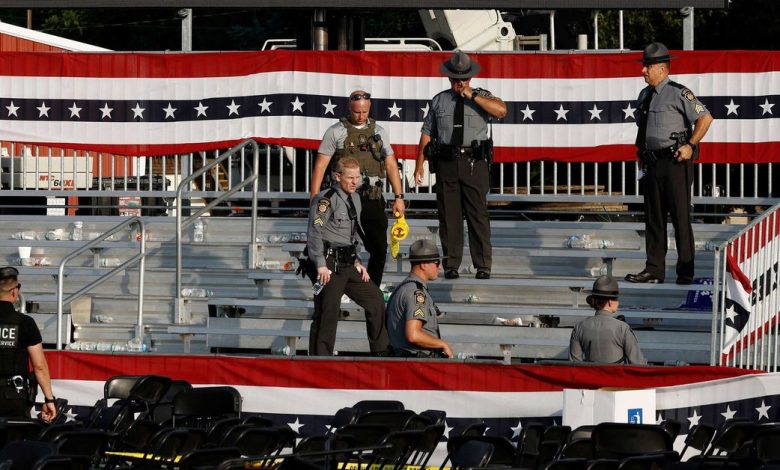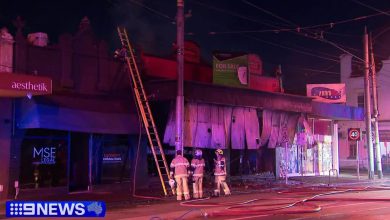State police commissioner reveals stunning details about Trump shooting

Pennsylvania State Police Commissioner Christopher Paris’ striking testimony comes just one day after now-resigned Secret Service Director Kimberly Cheatle testified before the House Oversight Committee and largely declined to answer questions about the shooting at the former president’s Pennsylvania rally.
Paris told lawmakers about the communications between the Secret Service and local law enforcement who initially spotted Thomas Matthew Crooks, the would-be assassin. He also described a more detailed timeline from when officers first spotted Crooks in the crowd to when the 20-year-old opened fire on Trump.

Here’s what to know from Tuesday’s hearing:
Officer left post to look for Crooks
Paris testified that two local law enforcement officers left a building with vantage points overlooking the roof where Crooks took aim at the former president before he fired shots, but the local district attorney later said the building was never unmanned.
Paris said that two officers with the Butler County Emergency Services Unit, a tactical force with sniper capabilities, left their posts in the building to look for a suspicious individual they spotted first and alerted to other law enforcement. That person was Crooks.
Wednesday, Butler County DA Richard Goldinger disputed the testimony, saying that only one of the ESU officers left the building briefly to search for Crooks.
“Both ESU officers moved within the building, attempting to keep eyes on Crooks,” Goldinger said in a statement. “One of the officers observed Crooks sitting on a picnic table at the front of the building from his location on the second floor of the building. Crooks then ran off, carrying a backpack.”

“At this point, that officer ran out of the building attempting to keep eyes on Crooks until other law enforcement arrived. The other officer remained in the building, on the second floor,” Goldinger said. “The officer who ran out of the building could not locate Crooks, and he returned to the building. Both officers then heard shots fired.”
Goldinger added that “neither officer could see Crooks on the other building due to the visual angle they had from their location to Crooks’ location.”
Investigators believe that Crooks fired eight rounds before he was killed by counter-snipers, Paris said.
“I believe that the number is eight,” Paris told the committee. “Eight casings have been recovered.”
Officials had previously only confirmed that the shooter fired multiple times at the rally earlier this month.
Paris also told members of Congress that “several Secret Service agents” told the state police area commander during a walkthrough of the area before the rally that the Butler County Emergency Services Unit was responsible for securing the building where Crooks fired the shots.
A municipal officer came face-to-face with Crooks during the several minutes the would-be assassin was on the roof before Crooks fired on Trump, Paris testified.
Paris said that the brief confrontation came as a pair of local officers who had learned of Crooks’ position on the roof attempted to climb up and confront the shooter. But while the officer was “dangling” from the roof, Crooks aimed his rifle at the officer and the officer fell.

Trump meets with former UK prime minister after attempted assassination
Paris told lawmakers that Crooks was on the roof for roughly three minutes, but only a few seconds passed between when the officer confronted him and when he fired at Trump, correcting a timeframe he gave earlier in the hearing.

“When the one local officer hoisted the other one up, and subsequently falls,” Paris said, Crooks was “already, I believe, close to being in his final position there. And I’m told it’s – again, sequence of events, not a timeline based on the prior criteria laid out – but seconds after that is when the first shots rang up.”
Paris said that whether, or when, the confrontation was relayed to the Secret Service or other law enforcement agencies at the rally “remains under investigation.”
Communications between Secret Service and local law enforcement
Paris also detailed communications among law enforcement about Crooks before Trump took the stage at the rally earlier this month.
According to Paris, “there was a text thread going” with members of the Butler County Emergency Services Unit, some of whom initially spotted Crooks and reported him as a suspicious individual.
“At some point when he utilised the range finder, the suspicion was heightened,” Paris said of Crooks.
State Police then received a call and a text from the ESU about Crooks’ activity that they immediately relayed to Secret Service. Local, state and federal law enforcement were in a unified command post at the rally.
State Police “verbally turned right around and gave it to the Secret Service,” Paris said.




